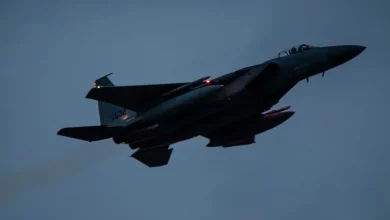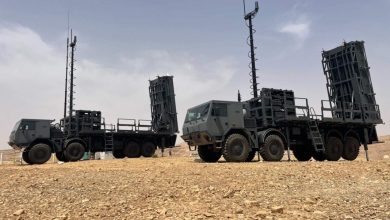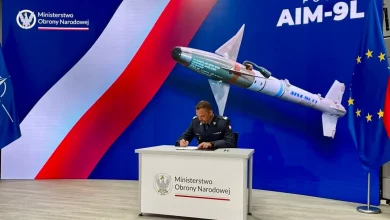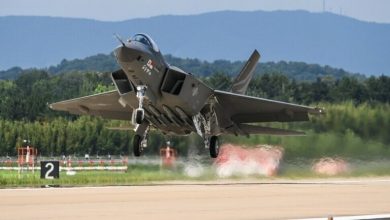Analysis: Political, economic, and humanitarian perspectives on Ukraine war
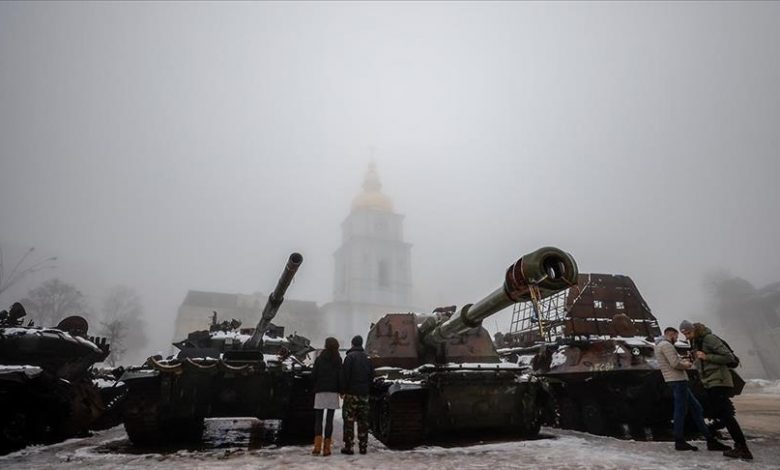
The conflict is already considered the most powerful blow to Europe’s security order since World War II and has numerous political, economic, and humanitarian ramifications.
The war in Ukraine has completed its first year with no genuine prospect for peace, quite the contrary. According to Ukrainian Defense Minister, Oleksii Reznikov, Moscow plans to conduct a major offensive to coincide with the war’s first anniversary on 24 February. The conflict is already considered the most powerful blow to Europe’s security order since World War II and has numerous political, economic, and humanitarian ramifications.
- How did international actors respond to the war in Ukraine?
Over the past year, international actors have pursued different courses of action in line with their grand strategies. For instance, the United States and many European nations have adopted a confrontational tone and approach. Western countries have taken a firm stance against Moscow, seeking to curb Putin’s “war machine” through large-scale sanctions. They have also accelerated the delivery of military aid to the Ukrainian army. Nevertheless, Washington’s goodwill and largesse seemed to have reached their limits, as President Biden said “no” to the question about sending F-16 fighter jets.[1]
The new realities of war in Europe also heightened interest and demands for NATO membership, which served as an efficient security umbrella during the Cold War. Finland and Sweden, for example, submitted their membership bids by demanding a fast-track membership process. NATO Secretary General Jens Stoltenberg has repeatedly stressed the importance of preserving the internal unity of the alliance, framing Russia as the first and China as the second greatest threat in the 2022 Strategic Concept document.[2]
Contrary to the Western stance, China pursued its neutrality and non-interference strategy and tried to keep its “friendship with no limits” approach to Moscow by being an economic “lifeline” amid growing Western sanctions against Russia. For Beijing, the significance of the war in Ukraine is more about acquiring insights into the performance of armies on the battlefield. Russia’s military shortcomings in the field and the international community’s reactions have taught China valuable lessons.[3] Beijing’s generals understood how to improve the People’s Liberation Army (PLA) by enhancing joint operation capabilities, upgrading logistical capabilities, and fighting against corruption in military bureaucracy. These are undoubtedly crucial key takeaways for China’s prospective search for regional dominance in the Asia-Pacific.
- What are the main implications for the global economy?
The war has created a challenging economic and trade environment in the region and has led to a more uncertain and unstable global economic landscape. The war has adversely affected energy, commodity, logistics, finance, and some vulnerable sectors. As a result of the economic sanctions imposed on Russia, energy insecurity arose in Europe, and many countries sought alternatives to Russian gas. Europe has chosen to import Liquefied Natural Gas (LNG), signing agreements with the US [4] and Qatar [5] and giving these forces considerable leverage in global energy markets.
The war has also disrupted trade flows between Russia, Ukraine, and Europe, leading to declining exports, reduced investment, and significant currency disruptions. The World Bank reports[6] that there has been a decrease in global income by 0.7%, with a 1% decline in low-income countries, due to a reduction in global exports in 2022.
The war in the region, known as the breadbasket of the world, has had a significant impact on the global food market, causing prices to rise. According to the UN Food and Agriculture Organization (FAO), global food prices increased by 14.3% compared to the previous year.[7]
During the first two weeks following the outbreak of the war, the prices of oil, coal, and gas experienced[8] a sharp increase of approximately 40%, 130%, and 180%, respectively. Europe remains committed to maintaining sanctions against Russia, intending to impose additional sanctions on Russia on the first anniversary of the War, as stated by the President of the European Commission Ursula von der Leyen.[9]
- What is the humanitarian toll?
The human costs of the war are dire. The Office of the United Nations High Commissioner for Human Rights (OHCHR) has recently confirmed a total of 7,110 civilian deaths and 11,547 injuries since the outbreak of the war.[10] Out of the total deaths, 438 were reported to be children. The OHCHR also noted that the actual numbers might be higher. In 2023, approximately 17.6 million Ukrainians will need multisector humanitarian aid, with 45% of them being female, 23% being children, and 15% being people with disabilities. The figure encompasses 6.3 million people who have been internally displaced, 4.4 million individuals who have returned to their homes, and 6.9 million people who have stayed in their homes throughout the conflict.[11]
Humanitarian impacts are not solely limited to the Ukrainian territory. Chronic famine and hunger caused by food insecurity have become major issues, particularly in Sub-Saharan Africa. According to World Food Programme (WFP), the number of people acutely food insecure or at high risk significantly increased primarily because of rising food and fertilizer prices, contributing to a substantial increase of 29.8 million in Sub-Saharan Africa since the beginning of the war.[12]
It is worth mentioning the Black Sea Grain Initiative, spearheaded by Türkiye and the UN in July 2022 to address the food crisis aspect of the war. This initiative showcases an example of diplomacy [13] driven by constructive and humanitarian principles and presents a model for the international community to take practical steps to tackle global food insecurity.
Source: AA


